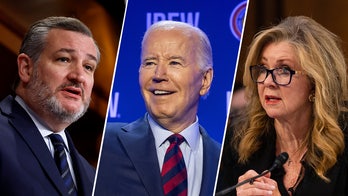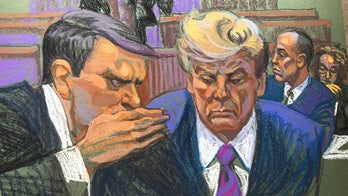Fox News Flash top headlines for March 31
Fox News Flash top headlines are here. Check out what's clicking on Foxnews.com.
Seattle's chief of police said in a Monday night video that she wants residents to call 911 if called racist names during the coronavirus pandemic.
"Washington state is no place for hate. In a show of solidarity between police and community, I'm joined today by Lori Matsukawa," Chief of Police Carmen Best said, referring to the retired KING 5 news anchor who joined her in the video.
"Hate crimes have no place in our community," Matsukawa continued. "We're better than that, Washington. We're all trying to deal with the COVID-19 public health crisis together. If you are a victim of a hate crime or hate-based harassment, please call 911."
AMERICANS IN CLASS-ACTION SUIT AGAINST CHINA SPEAK OUT ON HOW CORONAVIRUS HAS UPENDED THEIR LIVES
"Exactly," Best said as the video cut back to her. "We will document and investigate every reported hate crime. Even racist name-calling should be reported to police. We take this information very seriously. If aren't sure if a hate crime occurred, call 911. We are here to help and will respond to investigate."
"When we work together," Matsukawa said. "We're safer together," Best said, finishing her sentence.
As the coronavirus pandemic has infected more and more Americans, there's been an uptick in incidents of bias against Asian-Americans who say they are being blamed for the coronavirus, which originated in China.
CLICK HERE TO GET THE FOX NEWS APP
The message to Seattle citizens that they should call 911 because of racist name-calling comes as Washington has the seventh most confirmed coronavirus cases of any state, as of Tuesday morning, with 5,187. It is second only to New York in deaths with 219.
Hate speech is broadly protected by the First Amendment, meaning there is likely little the Seattle Police Department will be able to do if an incident of racist name-calling is reported. The department would be able to prosecute hate crimes, which under Washington state law include "physical injury" to a person, "physical damage" to a person's property or threats that would put a reasonable person "in reasonable fear of harm to person or property."
The Washington state law on hate crimes clarifies that "[w]ords alone do not constitute a hate crime offense unless the context or circumstances surrounding the words indicate the words are a threat. Threatening words do not constitute a hate crime offense if it is apparent to the victim that the person does not have the ability to carry out the threat."





